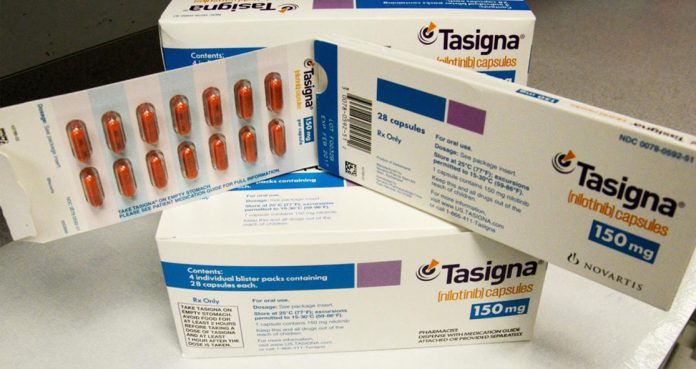According to a new study, Nilotinib, a drug used for the treatment of chronic myeloid leukemia, has found to be more effective at treating a type of childhood brain cancer called medulloblastoma.
Researchers from the Skaggs School of Pharmacy and Pharmaceutical Sciences at the University of California San Diego conducted the study on mice, which was published Friday in PLOS One.
The researchers found that the use of single drug nilotinib specifically targeted cancer cells tumor through two different mechanisms, making it extremely effective and less toxic than using a combination of multiple drugs.
Lead study author Dr. Ruben Abagyan of the Skaggs School of Pharmacy said, “We discovered a previously unknown activity of nilotinib that may be leveraged to treat a large fraction of cases of medulloblastoma, a type of childhood brain cancer. While more research is needed, this pharmaceutical could potentially be used for several cancer types with an overactive cell-signaling pathway.”
Along with one-third cases of medulloblastoma, several types of basal cell carcinoma, myeloid leukemia, pancreatic adenocarcinoma, and glioblastomahave an impairment in a key cellular system, which is known to regulate the development of embryo and regeneration of the adult tissue.
The impairment of this key cellular system can lead to overproduction of cancer cells, which could lead to death.
“Only a fraction of patients with this subtype of medulloblastoma respond well to current therapies that only target Smoothened,” explained Dr. Abagyan.
The study author continued, “Knowing that dysregulation of the Hedgehog pathway is important to the maintenance of cancer stem cells, and that it plays a critical role in several cancers, we wanted to find a single drug that inhibits this pathway in addition to several other essential anti-cancer activities.”
Dr. Abagyan and his team found that mice with human medulloblastoma tumors who received Nilotinib alone had tumor growth reduction with no drug resistance.
The U.S. Food and Drug Administration has already approved Nilotinib for the treatment of chronic myeloid leukemia in 2017 with a safety profile. The agency said it is a good therapeutic drug that can be prescribedalone or along with chemotherapy, radiotherapy, and surgery, according to the researchers.





















